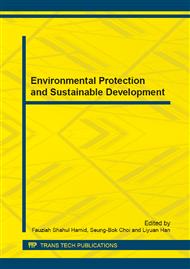p.1567
p.1573
p.1577
p.1581
p.1590
p.1595
p.1600
p.1607
p.1612
Analysis on the Relationship between the Effect of Diversity and Innovation of Technology in Chinese Cities
Abstract:
Improving the capacity of urban technological innovation is the only way to develop urban economy and improve national innovation capacity. From the perspective of the technology spillover effect of the different industrial agglomeration mode, we select the prefecture-level cities of 23 provinces in China from 2008 to 2010 and use empirical analysis.The results suggest that: The research on the innovation of civil technology in China imply that the relatively diverse industrial cluster, that is to say the Jacobs' externality, could accelerate this process. Both of educational expense and GDP affect the innovation of urban technology positively and significantly. FDI doesnt make a significantly effect on the innovation of urban technology.
Info:
Periodical:
Pages:
1590-1594
Citation:
Online since:
February 2014
Authors:
Price:
Сopyright:
© 2014 Trans Tech Publications Ltd. All Rights Reserved
Share:
Citation:


